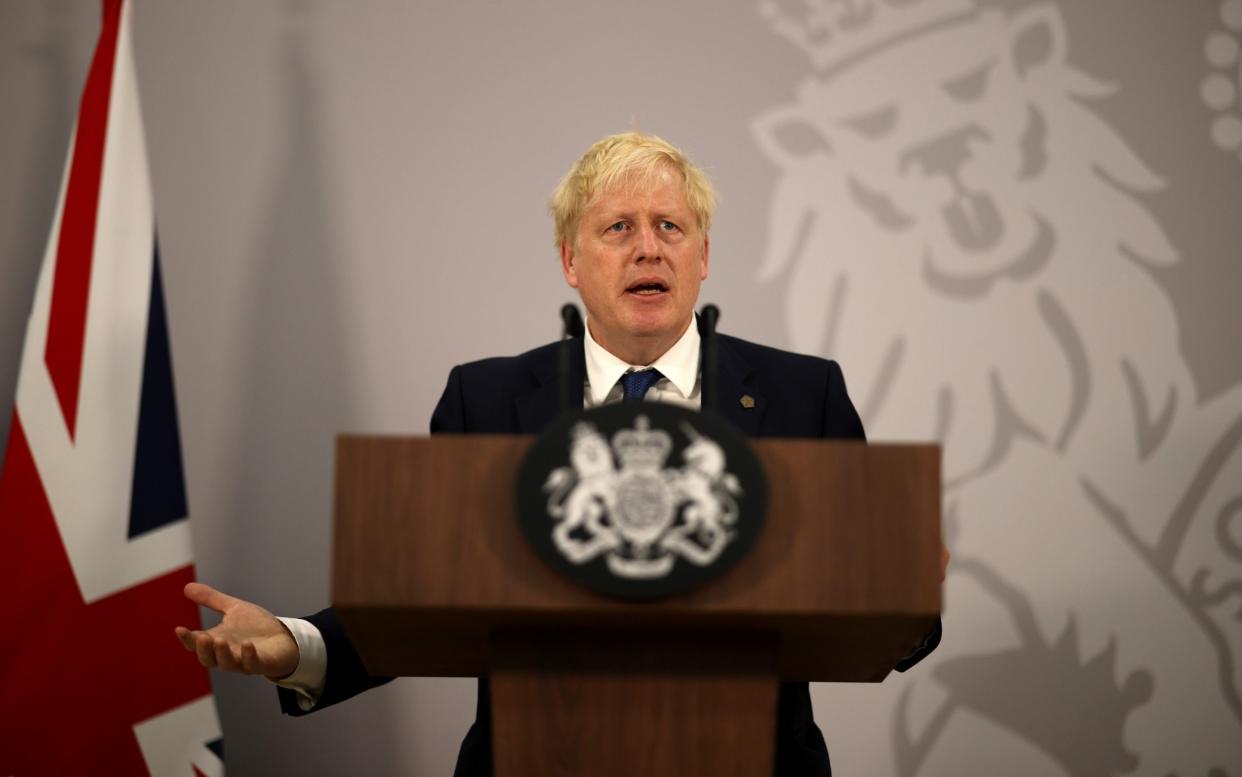Boris Johnson: I will not 'undergo psychological transformation' in wake of by-election defeat

Boris Johnson has said he will not undergo a "psychological transformation" in the wake of his party's double by-election defeat.
Facing down his critics, he insisted bad midterm results "happen to every Government".
Mr Johnson also claimed the only argument of "substance" made by his critics was a desire to rejoin the single market.
Fresh questions surround the Prime Minister's leadership after the Conservatives lost Tiverton and Honiton to the Liberal Democrats in the worst ever by-election defeat, while also losing the 'Red Wall' city of Wakefield to Labour.
Oliver Dowden, a longtime political ally, warned on Friday "business as usual" could not continue after he resigned as Tory chairman in a letter that did not signal explicit support for the Prime Minister.
Asked about these comments and whether he should change, Mr Johnson told BBC Radio 4's Today programme: "If you’re saying you want me to undergo some sort of psychological transformation, I think that our listeners will know that that is not going to happen.
"But what you can do and what the Government should do is get on with changing, reforming and improving our systems and our economy.
"If we’re going to have an argument about politics, let’s have an argument about for instance how the railways run, and that’s a subject of absolutely engrossing fascination for people up and down the country because they’re being affected by the rail strikes."
Questioned about the prospect of scores of Tory MPs losing their seats if Thursday's by-election results were to be repeated nationally, he implied his internal critics lacked any viable alternative policies.
"I say to them with great respect, I love all these people, but don’t forget that the only actual argument I’ve heard some of my critics make of substance about the change of direction they’d like to see is to go back into the EU single market," he said.
"That’s literally the only manifesto point I’ve seen, come on folks."
He was referring to comments by Tobias Ellwood - one of his most vocal Tory critics - suggesting single market membership was not an "insurmountable" issue and could resolve problems at the Irish border.
A number of staunch Brexiteers, including David Davis, Steve Baker and Mark Harper, also called for Mr Johnson's resignation at the height of 'partygate'.

After Mr Johnson survived a confidence vote in his leadership on June 6, which saw 148 of his own MPs vote against him while 209 showed their support, his message to rebellious backbenchers was clear.
"Let’s look at this in a more cheery way, if that is possible, which is that actually what’s happened is I’ve got a renewed mandate and I will continue to deliver. I humbly accept and I really, really see that people are having it tough," he said.
He repeated that the Government could not rule out further cuts to fuel duty, or cutting VAT for consumers on energy bills, but insisted ministers had to be "sensible" in light of the current situation and made the case for broader reform.
"We’re cutting fuel duty and that’s fine, and you’re right, that will be swallowed up," he said. "There may be more that we have to do. But you have to look at the way the energy market works."
Pressed on whether there were any issues he would consider a resignation matter, Mr Johnson gave the example of if the Government decided it would have to abandon its package of support for Ukraine "because it was simply getting too difficult, the cost of supporting [them] in their heroic fight".
"I think I would accept that I'd lost a very important argument and I'd go. But I don't see that," he said.

 Yahoo Movies
Yahoo Movies 
